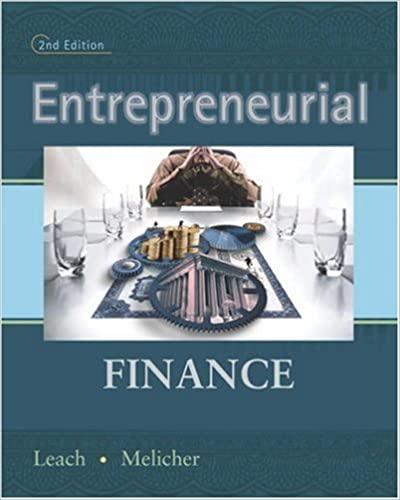Answered step by step
Verified Expert Solution
Question
1 Approved Answer
This is second part. Thank you for the help. and there is attached document. Happy new year. Instruction for data collection Australian Stock Exchange: For
This is second part. Thank you for the help.
and there is attached document.
Happy new year.
 Instruction for data collection Australian Stock Exchange: For companies, stock code and industries. http://www.asx.com.au/ Click: Price and research Click: Company information Click: View all companies Choose companies and find further link by yourself. Yahoo Finance For Indexes, securities price and market capitalisation http://au.finance.yahoo.com/ Select: Investing Click: Market stats Type: Securities code, e.g., ANZ.AX (here must have .AX), or index symbol eg: ^AXJO for S&P/ASX 200, and then click Look up Click: Historical prices Choose: Monthly (time period), and then Click get price Click: Download to Spreadsheet (save and open with in excel) Select: The adjusted closing prices under \"Adj Closing\". Click: key statistics (under \"Company\") Take record of Market Cap (treat it as no change in your data period of three years) S&P/ASX 200 https://en.wikipedia.org/wiki/Main_Page https://en.wikipedia.org/wiki/S%26P/ASX_200 http://au.spindices.com/indices/equity/sp-asx-200 Reserve Bank of Australia http://www.rba.gov.au/ For Interest rates (risk free rate), exchange rates etc Click: Statistics. Click: Economic and Financial Statistics Click: Statistical tables Under the Interest Rates, choose Capital Market Yield - Government Bonds, monthly (in the interest table), then you will get an Excel sheet. In the third column, calculate the average yield of 36 months (from 1st April 2012 to 1st April 2015) and then divided by 12, i.e., you get monthly risk free rate that matches your monthly stock returns. However, due to recent years' bear market, many stocks' returns and market returns are lower than risk free rate. For the purpose to exercise the theory and methodology, I suggest to assume the risk free rate of 2% annually in your data period
Instruction for data collection Australian Stock Exchange: For companies, stock code and industries. http://www.asx.com.au/ Click: Price and research Click: Company information Click: View all companies Choose companies and find further link by yourself. Yahoo Finance For Indexes, securities price and market capitalisation http://au.finance.yahoo.com/ Select: Investing Click: Market stats Type: Securities code, e.g., ANZ.AX (here must have .AX), or index symbol eg: ^AXJO for S&P/ASX 200, and then click Look up Click: Historical prices Choose: Monthly (time period), and then Click get price Click: Download to Spreadsheet (save and open with in excel) Select: The adjusted closing prices under \"Adj Closing\". Click: key statistics (under \"Company\") Take record of Market Cap (treat it as no change in your data period of three years) S&P/ASX 200 https://en.wikipedia.org/wiki/Main_Page https://en.wikipedia.org/wiki/S%26P/ASX_200 http://au.spindices.com/indices/equity/sp-asx-200 Reserve Bank of Australia http://www.rba.gov.au/ For Interest rates (risk free rate), exchange rates etc Click: Statistics. Click: Economic and Financial Statistics Click: Statistical tables Under the Interest Rates, choose Capital Market Yield - Government Bonds, monthly (in the interest table), then you will get an Excel sheet. In the third column, calculate the average yield of 36 months (from 1st April 2012 to 1st April 2015) and then divided by 12, i.e., you get monthly risk free rate that matches your monthly stock returns. However, due to recent years' bear market, many stocks' returns and market returns are lower than risk free rate. For the purpose to exercise the theory and methodology, I suggest to assume the risk free rate of 2% annually in your data period Step by Step Solution
There are 3 Steps involved in it
Step: 1

Get Instant Access to Expert-Tailored Solutions
See step-by-step solutions with expert insights and AI powered tools for academic success
Step: 2

Step: 3

Ace Your Homework with AI
Get the answers you need in no time with our AI-driven, step-by-step assistance
Get Started


